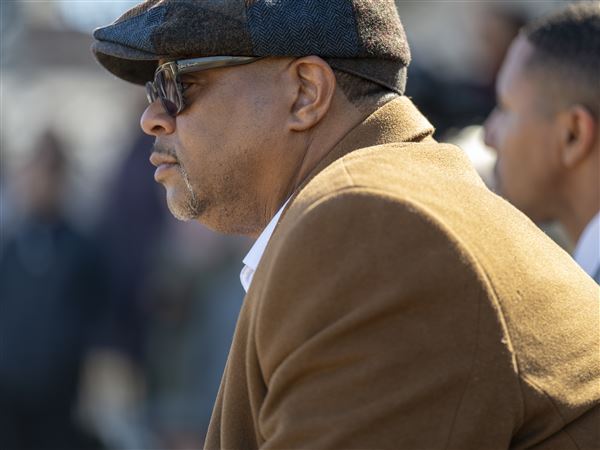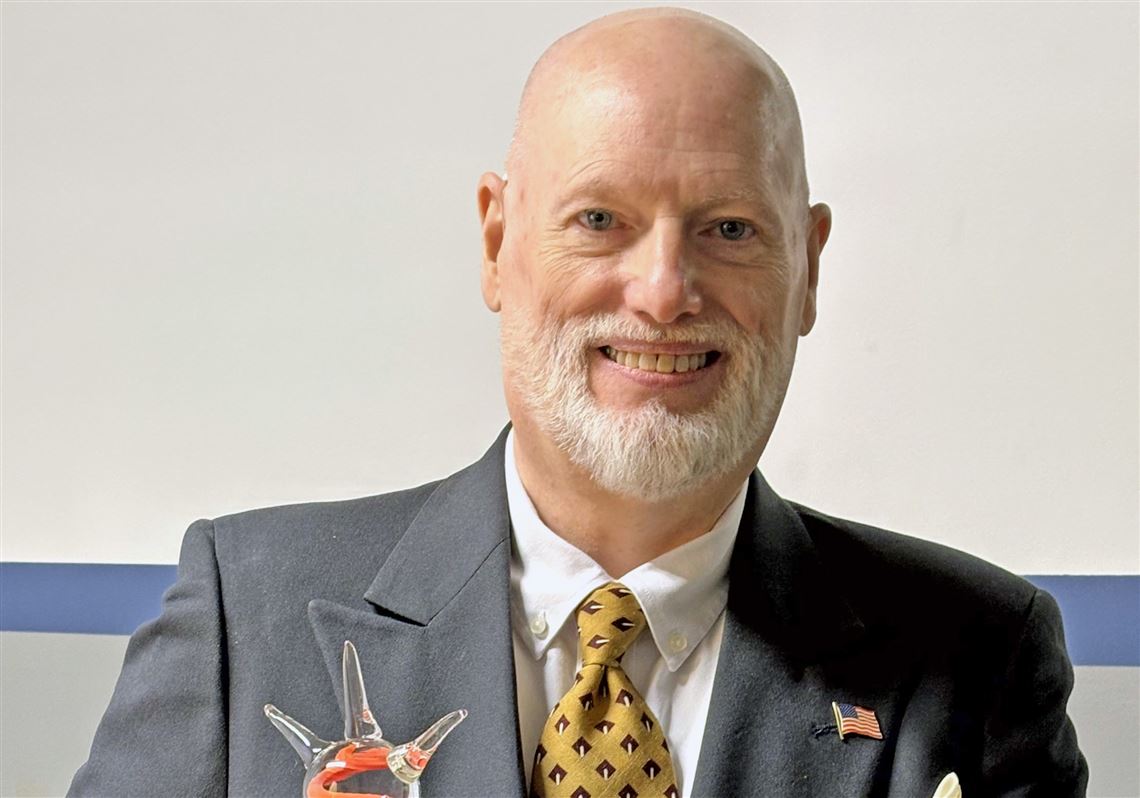In 1985, the first year that a test for HIV became available, Mike Hellman tested positive. It was a terrifying diagnosis at the time, and he watched friends, including his partner, die from the disease.
But Hellman didn’t see many symptoms until nine years after his diagnosis, at which point treatment drugs like AZT had become available.
“I felt lucky because I was always on the edge of medical breakthroughs,” he said, recalling being first in line at the pharmacy on the day that one drug, 3TC, was first released.
Side effects from various medications forced Hellman to go on disability at his job at PNC Bank in 2002. With some extra time on his hands, he started to volunteer. At that time, not many people were speaking openly about being HIV positive.
“I wanted to start giving back,” he said. “I went into the schools.”
For his many years of activism and advocacy for HIV and AIDS, Hellman received the Kerry Stoner Award from Pittsburgh-based nonprofit Allies for Health + Wellbeing earlier this month. Stoner, who died of complications from AIDS in 1993, was one of the founders of the Pittsburgh AIDS Task Force.
Hellman started working through the Pittsburgh AIDS Task Force’s speakers bureau in the early 2000s to teach “HIV 101” classes at high schools and universities.
He did so for nearly two decades (until the COVID-19 pandemic disrupted schools in 2020), reaching tens of thousands of students.
He would start by presenting the facts about the disease — facts that changed considerably over the nearly two decades that he taught the classes. And then near the end of the lesson, he would share that he was HIV positive.
“Their concept of what does an HIV-positive person look like was blown away,” he said. “They were interested. What’s this guy’s story?”
Mary Bockovich, chief executive officer at Allies for Health + Wellbeing, met Hellman in the mid 2000s and was impressed by the impact that his speeches were making on students.
“He’s so genuine and plain spoken and he’s very open and honest,” said Bockovich. “He’s willing to answer any question somebody might have, no matter how personal or intimate. He’s just real.”
That Hellman is so open about his status is a form of public service, she said.
“Even 40-plus years later, there is so much stigma attached to HIV and AIDS,” Bockovich said. “The fact that people are willing to share their status openly helps to remove that stigma and let people know that it’s not something to be ashamed of.”
Hellman hasn’t gone back to teaching HIV 101 since the pandemic hit, but has thrown himself into other forms of advocacy. He often heard from teachers and friends that he should share his story more widely and last year, he published his first book, “A Journey of Acceptance: When Some Days Are Best Forgotten.”
He has also served on the consumer advisory board for the AIDS Coalition of Southwestern Pennsylvania and on the state HIV planning commission. Additionally, he worked for the Shepherd Wellness Community, which hosts community dinners for those living with HIV.
Most recently, Hellman has been working on legislation for elder people with HIV and following new federal executive orders that have threatened to cut funding to HIV prevention and care organizations.
“Advocacy doesn’t stop and it’s important that the next generation is ready to take hold,” he said. “It never stops.”
First Published: March 12, 2025, 9:30 a.m.
Updated: March 13, 2025, 7:11 p.m.
















